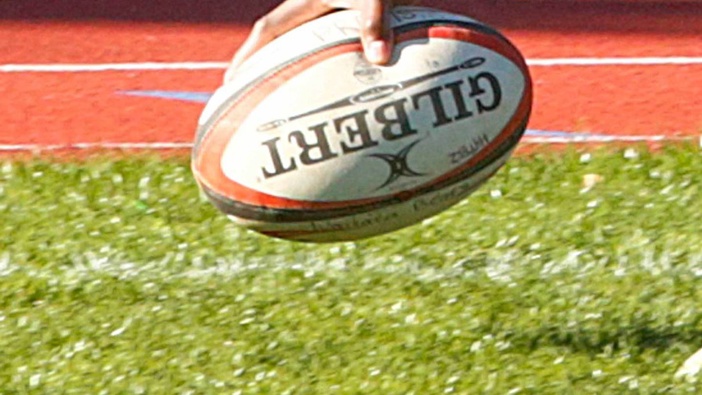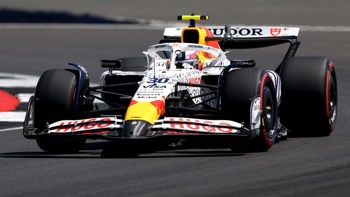Rugby league has banned transgender athletes from international competition according to reports.
Athletics and football also look set to replicate the landmark transgender ban by FINA on swimmers who go through male puberty from competing in elite women's races.
The Daily Telegraph reports the International Rugby League (IRL) has decided players who transition from male to female will not be allowed to play in sanctioned international events until further research is conducted, ruling them out of this year's World Cup in England.
"In the interests of avoiding unnecessary welfare, legal and reputational risk to International Rugby League competitions, and those competing therein, the IRL believes there is a requirement and responsibility to further consult and complete additional research before finalising its policy," the IRL said, per The Daily Telegraph.
"The IRL reaffirms its belief that rugby league is a game for all and that anyone and everyone can play our sport. It is the IRL's responsibility to balance the individual's right to participate — a longstanding principle of rugby league and at its heart from the day it was established — against perceived risk to other participants, and to ensure all are given a fair hearing."
World Athletics boss Lord Sebastian Coe has disclosed World Athletics was to re-examine its approach after hailing Fina for acting in the "best interests" of swimming by effectively stopping Lia Thomas racing in professional women's events.
Fifa, the world football authority, is understood to be consulting over potential new protections for women's competition.
Coe, meanwhile, said he had repeatedly pointed out that "biology trumps gender" as he appeared to welcome Fina's plans to create an open category and a protected female category.
The World Athletics president said the body had scheduled a discussion with its council at the end of the year both on its regulations on trans women, and on those governing the likes of Caster Semenya and others with differences in sex development (DSD).
"We see an international federation asserting its primacy in setting rules, regulations and policies that are in the best interest of its sport," Coe, who was a guest of Fina at its World Championships, said. "This is as it should be. We have always believed that biology trumps gender, and we will continue to review our regulations in line with this.
"We have always said our regulations in this area are a living document, specific to our sport, and we will follow the science. We continue to study, research and contribute to the growing body of evidence that testosterone is a key determinator in performance and have scheduled a discussion on our DSD and transgender regulations with our council at the end of the year."
After world swimming's governing body voted overwhelmingly on Sunday against trans women competing in elite women's sport, politicians are now applying intense pressure for other sports to do the same. Nadine Dorries, the Culture Secretary, announced a meeting with governing bodies next week.
"Fairness should always trump inclusion as a principle," she told LBC in an interview yesterday.
Trans women and DSD track athletes are subject to similar - but distinct - rules. The former are allowed to take part in women's events if they can demonstrate they have lowered their serum testosterone levels below five nanomoles per litre (nmol/L) for at least a year prior to competition. The latter must have lowered their testosterone for six months and only for races between 400 metres and a mile following a successful legal challenge against a blanket policy.
Decisions are made case-by-case in football. Last year, at the 2020 Tokyo Olympics, Quinn became the first non-binary athlete to compete at the Olympics for Canada. Given Quinn was born a girl, rule changes would not affect them.
However, players who have gone through male puberty could eventually be stopped from playing in elite female competition, although sources close to Fifa underlined consultations were "at an extremely early stage".
'I'm 100 per cent supportive of trans inclusion'
World Cup-winning footballer Megan Rapinoe yesterday became the highest-profile sportswoman to publicly support transgender athletes, arguing that the debate was about something much bigger than sport. Rapinoe, who is also an Olympic champion with the United States, said there was minimal evidence to show that transgender women had distorted elite competition.
"I'm 100 per cent supportive of trans inclusion," Rapinoe told Time magazine. In athletics, the most high-profile trans woman is 400m hurdler CeCe Telfer, while Semenya is the poster girl for DSD athletes worldwide. Semenya has repeatedly failed in legal challenges to World Athletics' DSD rules, but is awaiting a hearing at the European Court of Human Rights.
Coe said World Athletics was collecting data "all the time" about the performances of trans and DSD athletes. He added: "My responsibility is to protect the integrity of women's sport and we take that very seriously. If it means that we have to make adjustments to protocols, we will. If we ever get pushed into a corner to that point where we're making a judgment about fairness or inclusion, I will always fall down on the side of fairness.
"If one of my colleagues in my team suddenly becomes transgender, it doesn't make any difference to me. They will continue to do the same job with skill and aplomb in exactly the way they were before they made that transition. This is not possible in sport. It is fundamental to performance and integrity and that, for me, is the big difference."
As well as swimming, cycling last week announced stricter rules governing trans women, but stopped short of an outright ban. Coe refused to criticise other sports for "tiptoeing" around the issue, disclosing that World Athletics had spent US$1 million (£820,000) on legal fees formulating and defending its trans and DSD regulations.
"There are other sports that are genuinely fearful that, if they go down that road, they'll bankrupt themselves," he said.
Accusing the International Olympic Committee of creating "confusion" among international federations in the way it delegated the creation of transgender regulations to them, Coe added: "It's not an easy one for the federations to work within because they do have to make a decision."
- With The Telegraph UK
Take your Radio, Podcasts and Music with you










